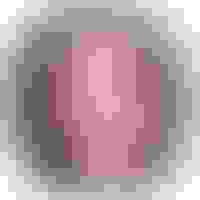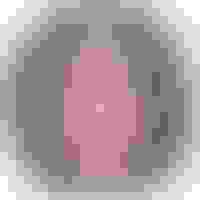Wisdom Teeth Removal in New Brunswick, NJ
Safe and Easy Third Molar Extraction
Wisdom teeth are your third and final set of molars. They usually develop between ages 17 and 25, which is much later than the other adult teeth. Because they develop so late, many people forget or don’t know that their wisdom teeth are coming until they start having pain or other problems. If left untreated, third molars can cause a number of oral health conditions that are completely avoidable by having them removed by an oral and maxillofacial surgeon.
Our practice has been in the New Brunswick community since 1948, and our oral surgeons have years of experience performing wisdom teeth procedures. Dr. Philip Engel, Dr. Richard Stern, Dr. Constantine Simos, Dr. Michael Stern, Dr. Amy Tanchyk, and Dr. Rohan Prabhu all adhere to the highest standards of care. We use the most reliable, advanced tools available to make sure each procedure goes as smoothly as possible. Contact us in New Brunswick, NJ, today to learn more or schedule a wisdom teeth consultation.
Benefits of Wisdom Teeth Removal
When wisdom teeth are causing pain, they should be removed right away. However, wisdom teeth do not always cause pain. This is why we stress the importance of attending regular checkups with your general dentist. If it is discovered that your wisdom teeth are developing, your dentist will refer you to an oral and maxillofacial surgeon to have them extracted.
Your existing molars are adequate for chewing, so this additional set of molars is unnecessary for proper function. Most people’s mouths are too small to accommodate four extra molars. If your wisdom teeth have enough space to grow into a healthy position, they may not need to be removed, but this is rare. In many cases, a wisdom tooth grows sideways and pushes against other teeth. A wisdom tooth can become impacted, or trapped beneath the gum tissue, in which case surgical intervention is necessary. Common conditions caused by wisdom teeth include:
- Damage to the roots of other molars
- Crowding of healthy teeth (especially the lower teeth)
- Impaction
- Infections, which can lead to tooth decay or gum disease
- Cyst and tumor formation
The easiest course of action is to have wisdom teeth removed before these problems arise, often before the teeth ever emerge from beneath the gums. Doing so can prevent future damage and discomfort for your existing teeth and healthy tissues.
Wisdom Teeth Removal Surgery
Before your procedure, you will come in for a consultation appointment so that your oral surgeon can review your condition, take 3D scans, and discuss your treatment plan. If you have any questions about your wisdom teeth procedure or anesthesia instructions, this consultation is the perfect time for you to ask them. As oral surgeons, we are qualified to administer all forms of anesthesia and offer many for you to choose from. Most patients undergo IV sedation for this procedure.
After the anesthesia is administered, your surgeon will remove the wisdom teeth. Visible teeth are simply removed with forceps, similar to a standard tooth extraction. For impacted wisdom teeth, the surgeon will lift a portion of the gum tissue to reach the tooth. The tooth may be broken into smaller pieces to make removal easier.
Once the teeth are removed, the surgical sites will be sutured and you will rest in our recovery area until the anesthesia wears off. You must arrange for a designated driver to remain in the office during your surgery, drive you home afterwards, and remain with you for 24 hours.
Follow the instructions we provide very closely. They will guide you on how to brush your teeth and rinse your mouth and care for your extraction sites. It's important not to use a straw for 1 week, as the suction could dislodge the blood clot within the tooth socket and create a painful condition known as dry socket.
EXPAREL®: Single-Use Non-Opioid Pain Relief
During your wisdom teeth extraction surgery, your surgeon can administer EXPAREL to the surgical site. This single-use pain relief manages pain for up to 72 hours following surgery and reduces or eliminates the need for opioid medication. Learn more on our EXPAREL page.
Stem Cell Banking After Wisdom Teeth Removal
After your or your child’s wisdom teeth removal, you may choose to bank the valuable stem cells from within these teeth. Stem cells can differentiate into different types of cells in your body to help tissue, bone, and organ repair. Your wisdom teeth naturally contain an abundance of these cells, and their potential is lost by just discarding them as medical waste following extraction. Invest in your and your child’s future health. Learn more about banking stem cells from wisdom teeth, or enroll today on the Stemodontics® website.
Wisdom Teeth Removal Cost in New Brunswick, NJ
There is no standard cost for a wisdom tooth removal procedure. The cost of your treatment will depend on several things, including the number of wisdom teeth you have, your choice of anesthesia, if any teeth are impacted, and your dental insurance. We will provide a cost estimate upfront so you know exactly what to expect.
Our office accepts a variety of payment methods, and there are options available to finance the cost of your wisdom teeth removal. Learn more about our Financial & Insurance Policy.
Types of Anesthesia
We offer several types of anesthesia to ensure patients remain comfortable in our care.
Hear From Wisdom Tooth Removal Patients
These patients can tell you about their firsthand experience undergoing wisdom tooth removal at our office.
Reviews From Our Wisdom Tooth Removal Patients


"Well, I found out from my primary dentist that I needed to get all four of my wisdom teeth removed, and I was looking at reviews, and I found this place. When I first came to Oral Surgery Group, the staff here was so incredibly friendly. I came first for a consultation, where I met with Dr. Stern. The way he explains everything, and you can tell he's very confident in what he's talking about. I knew I was in good hands, and then after that, I wasn't even nervous before the surgery itself. The procedure went amazingly smooth. It was flawless. I had all four of my teeth out — no pain, everything — it was better than I could have imagined. Even my friends don't even believe how well it went. If any of my friends or family — anybody in Edison, New Brunswick, East Brunswick, anywhere around — need to get their wisdom teeth removed, I would definitely recommend Oral Surgery Group for that."


"When I first walked into the practice, they were so welcoming. Everyone here is really great. They asked me questions. They made me feel really comfortable. My doctor was really nice. Before the procedure, he sat down and we talked and just made the process just that much easier. My procedure went very well. They constantly checked up on me, making sure that I was feeling okay. If I had any questions, I was able to contact them. They really do take care of you and make getting your procedure done that much easier. I feel great now. My overall experience was fantastic! I highly recommend Oral Surgery Group."


"When I first walked through the door, I was super nervous. I didn’t know what to expect. The staff here helped me to calm my nerves because they were very nice. Dr. Stern is very kind, he’s very gentle, he’s very thoughtful, and he’s a fantastic oral surgeon. The team here—they are also very thoughtful, very kind, very gentle. The procedure was quicker than I expected. By the time I woke up, the teeth were already out of my mouth. For any of my friends and family who are looking for an oral surgeon, I would highly recommend Oral Surgery Group."


"Well, I came here because my mom works here. I saw my dentist, and he took some X-rays, and it showed that my wisdom teeth were coming in crooked, so if they came in, they would have shifted all my teeth. My mom brought me in here for my consultation, and they took out all four of my wisdom teeth. I was very nervous for the surgery before I first came in, but Dr. Stern reassured me that everything was going to be okay, and I felt much better about it. My procedure went very well. It took me about a week and a half recovery, but after that, I was good to go. So, if any of my friends or family living in either East Brunswick, Monroe, Edison, I would highly recommend coming to the Oral Surgery Group."


"I needed surgery; I needed my wisdom teeth extracted. It was very bad, though, coming in pain for a few days because there was a couple of other things wrong with the wisdom teeth with cavities, but everything went all smooth, I guess. Everything was just awesome, awesome, awesome at the Oral Surgery Group. In the beginning, I was nervous; toward the end though, I was A-OK, happy, joyful. My recovery went really smooth — no swelling, no extra bleeding, no calls to the doctors, no extra pain at all. Everything was just smooth — A-OK. Dr. Engel's a perfect doctor. He's one of the best doctors that I've seen in a long time. The staff was amazing. Everybody from the front desk to the dental assistants, everybody was number one, the best you can get around. I would definitely recommend the Oral Surgery Group and Dr. Engel in New Brunswick."
Frequently Asked Questions
How long is recovery?
Recovery is different for everyone, but most people will need to take it easy for a few days after the procedure. You will be given pain medication to help control any discomfort immediately after the surgery. Most patients are back to their normal routines after 3 or so days, but the surgical sites will need to stay clean until they are fully closed, which can take up to 2 weeks. If you have any questions or concerns about recovery, your surgeon will be happy to answer them.
What should you not do before getting wisdom teeth removed?
IV sedation is the most common type of sedation for this procedure. Prior to your wisdom teeth removal, if you are undergoing IV sedation, do not have anything to eat or drink for 8 hours prior to surgery. If your surgery is in the morning, do not consume food or liquids after midnight the night before surgery. We provide you with instructions before and after surgery which contain everything you need to know for a smooth oral surgery experience.
Should I get two or four wisdom teeth removed?
You should have all of your wisdom teeth removed at one surgical visit. This saves you time and money, and whatever wisdom teeth you decide to leave in will eventually need to be removed due to the uncertain nature of these large teeth.
Can a regular dentist pull wisdom teeth?
A regular dentist does not have the same training as an oral surgeon. They both have dental degrees, but oral surgeons complete a residency program after dental school, where they learn how to administer anesthesia and perform complex procedures in a hospital setting. When a general dentist discovers the presence of wisdom teeth, he or she will refer the patient to an oral surgeon for treatment.
Decades of Trusted Care
Start your journey to better oral health and a more confident smile at Oral Surgery Group. Our compassionate team of specialists will walk you through every step, answer your questions, and make you feel like a part of our family. Learn more about us or schedule an appointment.








